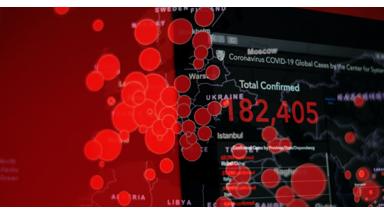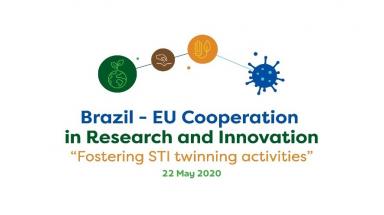2017-10-30
Interview: Luis Felipe Salin Monteiro. New technologies can contribute to humanizing the state and the contemporary relations

Luis Felipe Salin Monteiro
Graduated in Computer Science from the Federal University of Santa Maria, Monteiro holds a master's degree in Information Technology Management from the Catholic University of Brasília and Getúlio Vargas Foundation.
He previously managed the MP's Department of Workforce Systems and Informations, and implemented projects such as Sigepe Mobile, Painel do Servidor (Server Dashboard) and Assentamento Funcional Digital (Digital Functional Settlement). In the private sector, he worked for Volvo, Politec and SAP, working on modernization and information technology projects.
For him, digital transformation is much more than just scanning documents and computerising processes. "We do not want to fix the little things. Digital transformation is important because it involves a paradigm shift, in which the whole process is rethought, including its real needs", he affirms during an interview in the Innovation Week in Public Management.
Check out all the insights of Monteiro on digital transformation, challenges, partnerships and exchanges of experiences in the following interview.
Sector Dialogues: What is the importance of holding a seminar such as the 3rd Innovation Week, how important is the exchange of experiences, etc.?
Monteiro: The Innovation Week, since its first edition, aims to foster innovation in public management and contribute to the change of culture and mentality of the public servers. We plant the seeds for each participant to cultivate and disseminate in their respective organ. We try to bring national and international participants, because the exchange of experiences is rich and inspiring. We must also emphasize that in recent years, the theme of innovation has been spread widely in Brazil and we have accumulated a wide body of knowledge, which we seek to value as well.
Sector Dialogues: How important is digital transformation to nations?
Monteiro: Digital inclusion in countries is accelerating, especially in Brazil, where we already have more than 107 million frequent Internet users. On the other hand, in times of fiscal constraints like the one we are going through here, there is a latent pressure for the efficiency of service management. According to data from European countries, a digital service transaction costs 97% less than the same face-to-face service transaction. Therefore, there is enough room for digital government not only to improve efficiency, but also to gain more trust from the citizens.
Sector Dialogues: What are your expectations for the future in relation to digital transformation? What technological advances will we have within the next 5 years? Where can we go / Where are we going?
Monteiro: Digital transformation is much more than just scanning documents and computerizing processes. "We do not want to fix the little things. Digital transformation is important because it involves a paradigm shift, in which the whole process is rethought, including its real needs. The focus is the citizen, his experience, and the result for them, not the process or the environment. Citizens want to get services quickly, in a simple way and with added value, and that's what we have to offer.
As discussed on the last day of the Innovation Week, we hear about trends such as artificial intelligence and blockchain. In Brazil, we have great minds working on these issues. In the next five years, I would say that the application of artificial intelligence will bring greater agility in dealing with and reducing the risk of fraud. Moreover, the blockchain should be used in the validation of public documents, generating enormous time savings and, mainly, greater reliability. Where can we get? With the speed of innovation in the Market, it is still quite difficult to predict, but we like to think that technologies will help us to offer better living conditions for Brazilians.
Sector Dialogues: What challenges does Brazil face? Has Europe has already faced them? Or do they both have to face the same challenges?
Monteiro: We have to face many challenges before turning the Brazilian state into digital, and this includes, for example, the review of rules (protection of personal data, for example), investments in disruptive and scalable technologies (cloud, IoT, AI), cultural change and incentives to innovation in all public organisations, the transformation of work and the way we conceive it today, among others.
Digital transformation is already happening in the world and it is up to the government to keep up with it. New forms of business are launched all the time and they do not ask permission, they just appear. So the government needs to respond very quickly to their regulation. It's that old example of Uber and AirBnb. This is a challenge that many countries in the world are going through, and each one is dealing with it in their own way. We have to remember that in Brazil we still have an analogue government in an increasingly sophisticated context of private consumption. So, we have many challenges to switch the Brazilian state to digital, for example reviewing rules (protection of personal data, for example), investments in disruptive and scalable technologies (cloud, IoT, AI), cultural change and incentives to innovation in all public organizations, the transformation of work and the way we conceive it today, among others.
Sector Dialogues: Do you have any recommendations, according to the experience in Europe?
Monteiro: We have heard many interesting international cases during our trajectory, for example the cases of the "pragmatic" Denmark, the "maturity" of the United Kingdom and the "cultural proximity" of Portugal. We can take an important lesson on measurement, prototyping and testing. Before spending a fortune on a public policy, it is crucial to know if it will work. For this, we need to perform pilots and measure the variables appropriately, using representative samples. We also have the European experiences of digital transformation, the importance of doing it, taking into account the point of view of the citizens and the users of public services, making the state closer to the reality of people and, above all, more human. The lesson that new technologies can contribute to humanising the state and contemporary relationships is shocking.
Last news
-
23/10/2020
.jpg) Study addresses regulatory and governance challenges to decarbonize and digitalise the energy sector
Study addresses regulatory and governance challenges to decarbonize and digitalise the energy sector
-
16/10/2020
.jpg) Joint press release - 8th EU-Brazil High Level Political Dialogue on the Environment Dimension of Sustainable Development on 16 October 2020 (virtual meeting)
Joint press release - 8th EU-Brazil High Level Political Dialogue on the Environment Dimension of Sustainable Development on 16 October 2020 (virtual meeting)
-
03/08/2020
 Webinar discusses the importance of data protection in the COVID-19 pandemic
Webinar discusses the importance of data protection in the COVID-19 pandemic
-
22/05/2020
 European Union and Brazil decide to cooperate in projects to fight COVID-19
European Union and Brazil decide to cooperate in projects to fight COVID-19


